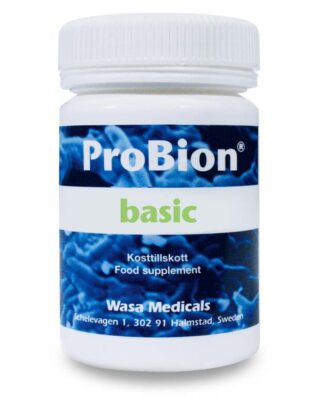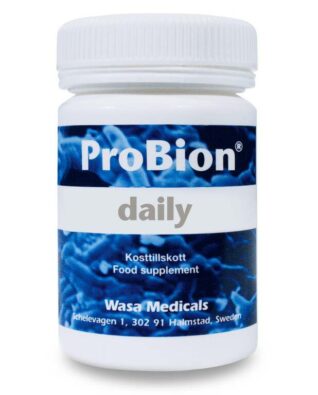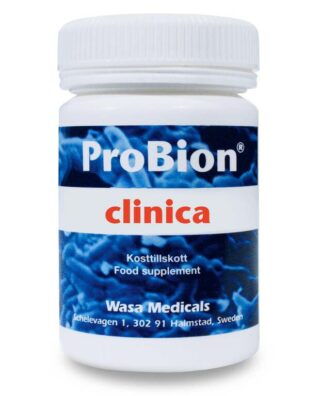
How Your Gut Flora Impacts Health
There’s no denying the fact that the health of your gut flora directly impacts your overall health and risk for chronic disease. With gut flora starting to colonize from the day you are born, and changing throughout your life, it’s essential to take the steps necessary to make sure you are giving your gut the best chance at establishing a healthy balance.
From immune system support to reducing your risk of chronic disease, gut flora has the potential to completely transform your health for the better. But, with poor gut flora balance, you put yourself at an increased risk of things like obesity, inflammatory disease, and diabetes.
Let’s take a detailed look at what gut flora is and the steps you can take to make sure that you are establishing a healthy balance to help support your body and optimize your health.
See also: How Much Toxic Poop Waste is Trapped in Your Body Colon?
What is Gut Flora?
Most of us are familiar with the term gut flora, but what exactly is it? Scientifically speaking, gut flora refers to the microorganisms, and bacteria that live inside of our intestines. (1) You may be familiar with gut flora being called gut bacteria, microbiota, microbiome, microflora, or intestinal flora, but these are all referring to the populations of bacteria inside of our intestines.
Our gut contains tens of trillions of these microorganisms with roughly 1,000 different bacteria species. What’s even more shocking is that microbiota can weight up to 2 kg, and about two-thirds of the gut bacteria is specific to each unique person. So, every person will have their very own unique bacteria population residing in their intestines. (2)
With trillions of microorganisms living in our gut, it makes sense that taking care of gut health, and doing what we can to support optimal gut flora is essential for overall health.
When Does Gut Flora Start to Develop?
One of the most impressive things about gut flora is that it really starts to support our bodies and overall health from birth. A newborn baby’s digestive tract is actually colonized by important gut flora from the mother. This process starts with a vaginal delivery, but if a baby is born via cesarean section, this colonization of important gut flora can also start from skin-to-skin contact and breastfeeding. (3)
Let’s take a look at when gut flora starts to develop, and exactly why healthy gut bacteria is so important for optimal health.
Three days after birth, the composition of gut flora is going to depend on how a baby is fed. Bifidobacteria is the primary microorganism present in breastfed babies digestive tract. Studies have found that by the time a child reaches the age of three, gut flora becomes similar to adults, and starts to stabilize. It will then continue to change and develop throughout life. (4)
This is one reason why supporting optimal gut flora is so important. It literally starts from birth, and mothers have the ability to give their baby the best start by supporting her own gut health during pregnancy, and then passing on beneficial bacteria after birth if she chooses to breastfeed.
During those first three years of life, optimal dietary choices and probiotic supplementation can also play a very large role in giving a child the best start when it comes to optimal gut flora. And, with gut health being central to the overall health of the body, we need to keep this in mind.
However, not all is lost if gut flora was suboptimal during those first three years of a child’s life. There are many ways to rebalance this flora and remember, that it’s always evolving, so we can always implement the necessary changes to get it back in balance.
Gut Flora Functions
Now that we know that gut flora starts to colonize as soon as birth, let’s take a closer look at two of the biggest roles gut flora plays in overall health. It all has to do with immune system support and metabolic functions.
- Immune Support: Surprisingly,there is quite a bit of communication between the immune system and all of the bacteria in the gut, and a huge part of the body’s immune system is actually in the gut. (5) In fact, 80% of the lymphocytes in the body are located in the intestinal wall in the gut-associated-lymphatic tissue, aka GALT.
With so much of the immune system in the gut, it makes sense that healthy gut flora can help keep us healthy, and the connection between the bacteria in the gut and our immune system is quite intricate. This is another process that starts from birth, where the bacteria starts to educate the immune system from the time a baby is born. (6)
Having well established gut bacteria and a healthy balance of gut flora is going to play an important part in how often you get sick as you get older. Diverse gut flora is needed from a young age in order to teach the immune system that not everything we come in contact with is bad or requires an inflammatory immune response. This is where the immune system comes in. The immune systems job is to have a balance between reaction as well as tolerance, and balanced gut flora with various types of bacteria is an essential part of this. (7) Unfortunately, when there is an imbalance in gut flora, the harmful pathogenic bacteria have the opportunity to push the immune system into an inflammatory state and even lead to conditions like leaky gut.
The bottom line is that having diverse microorganisms in your gut and a balance of healthy gut flora is such an important part of keeping your immune system robust. So, if you find yourself getting sick quite often, it may be time to take a look at the health of your gut and start supplementing with a high-quality probiotic year-round. Giving your gut bacteria a boost is going to help you stay healthy even during cold and flu season.
- Metabolic Effect: In addition to immune system support, gut flora also plays a role in providing essential vitamins as well as nutrients. Gut flora can also help with the digestion of certain foods like resistant starches and FODMAPS that were not able to be digested in the small intestine. (8)
Having healthy gut flora is also important for preventing things like metabolic syndrome, diabetes, and obesity. Studies have found that certain strains of bacteria like Clostridia that are part of the microbiome may help prevent obesity. (9)
Other Reasons Optimal Gut Flora is So Important
In addition to the massive role gut flora plays in the immune system and the production of vitamins, minerals, and digestion, there are some other functions that make gut flora balance essential for better health. (10)
- Gut microbiota can help produce certain vitamins, particularly B vitamins which are necessary for converting food to energy.
- Healthy gut bacteria can fend off harmful gut bacteria and help support the intestinal mucosa and the gut mucosal barrier.
- A healthy balance of gut flora can help protect the body from pathogens.
- Gut flora can help support drug metabolism.
- Gut flora plays an important role in immune modulation.
How Gut Flora Impacts Health
Poor gut flora or other known as intestinal dysbiosis (link to blog post on dysbiosis) can be a big contributing factor to many health problems. Some of these health issues may not even be directly related to digestive health, which is why many people may not link imbalanced gut flora to what is going on with their health.
Here are some of the health issues that have been linked to dysbiosis. (link to blog post on dysbiosis)
- Eczema: Skin-related issues are very closely related to gut health. Eczema happens to be a big sign of gut imbalance. Studies have found that changes in microbial balance in both the gut and on the skin has been linked to altered immune responses and the development of conditions like atopic dermatitis. (11) There’s a big link between the gut and skin, and more and more research is being done to evaluate the connection between the gut-skin axis further.
- Diabetes: Changes in intestinal bacteria has been linked to inflammation, intestinal permeability, and can be a cause of insulin resistance. (12)
- Inflammatory Bowel Disease (IBD): Imbalanced gut bacteria is closely linked to inflammatory bowel disease, and some studies have even gone as far as saying that imbalanced gut bacteria a prerequisite for this inflammatory disease. (13) Those who suffer from Inflammatory Bowel Disease are also commonly deficient in certain strains of healthy gut bacteria such as bifidobacteria.
- Metabolic Syndrome: Metabolic syndrome involves a cluster of different health issues, including high blood pressure, high blood sugar, high cholesterol, and excess weight around the midsection. Having imbalanced gut bacteria may put you at an increased risk of developing metabolic syndrome, and with metabolic syndrome comes the increased risk of obesity, cardiovascular disease, and type 2 diabetes. (14)
- Obesity: Having enough beneficial bacteria has been found to help prevent obesity. (15) There’s a very close connection between the two, and just one more reason to focus on supporting optimal gut flora.
How You Can Support Your Gut Flora
Probiotics: Supplementing with a high-quality probiotic, is one of the best ways to help optimize your gut flora. Probiotics help replenish the beneficial bacteria in the gut. High-quality probiotics like ProBion can help support normal digestion, support regularity, and help restore intestinal balance all while also causing the die-off of the harmful bacteria. ProBion probiotics can help you achieve balanced gut flora and help support long-term health.
Prebiotics: Prebiotics are food for the probiotics, and you can get these from certain foods like garlic, onion, and Jerusalem artichokes. ProBion probiotics also contain inulin, which is a prebiotic to help improve the effectiveness of the probiotic and really help it go to work on supporting optimal gut flora.
Nutrition: The foods you eat plays a direct role when it comes to the health of your gut. While there are foods that can help support optimal gut flora, there are foods that can exacerbate any imbalance that may be present. You will want to eliminate or at least reduce your sugar intake, avoid processed foods, and increase your intake of fermented, probiotic-rich foods. Things like sauerkraut, kimchi, miso, tempeh, full-fat unsweetened coconut milk yogurt, and kombucha are all great options.
Self-Care: Self-care is an essential part of reducing stress, an important part of supporting optimal gut health, and balancing your gut flora. Stress can cause poor gut health, so make stress management a priority. (16) Try moving your body more through gentle exercise like yoga or Pilates, practicing regular meditation, and just being mindful about how much time you dedicate to relaxation each day.
Avoid Antibiotic Use: While antibiotics play a role in modern medicine and fighting off bacterial infections, there are some big concerns when it comes to their use. One of the biggest problems with antibiotics is that they not only strip the body of harmful bacteria, but they also take the good bacteria with it. The concern with antibiotic use is that with frequent use, they have the potential to cause long-term alterations to the healthy gut flora and even cause the transfer of resistant genes that may lead to organisms with various drug-resistant genes. (17) Strive to avoid unnecessary antibiotic use, and if you do have to take an antibiotic, you will want to supplement with a high-quality probiotic with various bacteria strains like ProBion to reinoculated the gut with healthy flora.
The Bottom Line
Optimal and balanced gut flora plays such a major role in the optimal functioning of our entire body. Many experts in the field of digestive health are now viewing this colony of microorganisms as an “organ,” and we really should treat it as one. (18) We need to be taking care of our gut health just as we would take care of any other organ in the body.
Without balanced gut flora, we run the risk of developing chronic disease, and it’s essential to remember that supporting the gut really starts from birth. A nutrient-dense diet, high-quality probiotic supplementation, and a healthy and low-stress lifestyle are all key parts of keeping gut flora in balance and thus supporting the overall health of the body.










